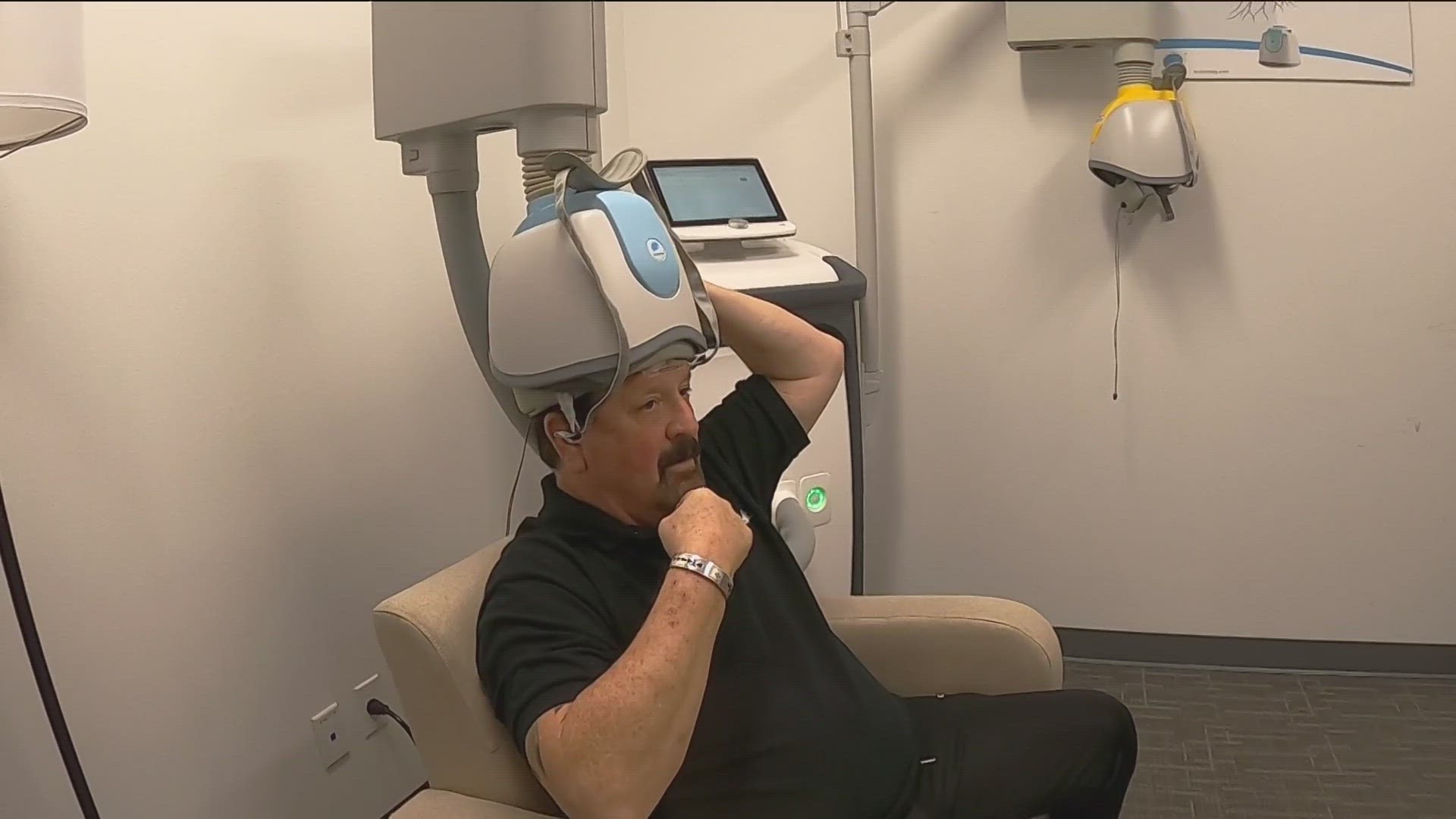SAN DIEGO — As Mental Health Awareness Month comes to a close, CBS 8 explored a little-known therapy for deep depression that's gaining popularity. It's non-invasive and is typically used only after a patient has unsuccessfully tried medications to treat their depression.
For Bill Waite, a Navy veteran, it wasn't an easy decision to share his private story, but he agreed to open up about his story to let his fellow veterans know, there is hope for those who feel they have no other options.
After serving in the Navy for 20 years, Waite had a tough transition back to civilian life. He struggled with anxiety, depression, and PTSD for decades and tried different medications, but nothing worked until he discovered a little-known therapy called Transcranial Magnetic Stimulation (TMS), which he says transformed his life.
“At the end of the day, and I’ve thought about it for a long time, I just want to be an advocate for other veterans,” Waite said.
TMS therapy uses magnetic coils to stimulate nerve cells that control mood and depression. Dr. Yashwant Chaudhri of Cal TMS says it works by stimulating underactive neurons.
Patients receive 3,000 magnetic pulses per session, which lasts about twenty minutes. On average, patients have 36 treatments. According to Dr. Chaudhri, the side effects are minimal and the results can be dramatic.
“It’s a liberating feeling to get out of that misery every day,” reflected Waite.
Waite went five days a week for 60 total treatments. He said the side effects were minimal and that he would do more sessions if needed. He is now much happier, relaxed, and better able to deal with stress.
Chaudri has used TMS therapy for more than 1500 patients, about 80% of them veterans.
Waite's health insurance covered 100% of the cost, and he finished treatment two months ago. He said he is much happier, relaxed, and better able to deal with stress.
As the proud veteran prepares to retire from his second career at Collins Aerospace in Chula Vista, he still can't believe how different he feels today compared to his life just six months ago.
"It's like you live in this dark, horrible world. You just think you're never going to get out, that your feelings are just stifled. You just can't. Nobody understands you. And then all of a sudden. It's just like it's a miracle. It just feels like you can function. You can be part of the human race again," he said through tears of happiness.
TMS therapy is becoming more recognized, and Waite hopes more people suffering from depression and PTSD will try it.
"It's life-changing. You can't imagine what people have suffered for 30, 40, some veterans even 50 years. And those are the people I'd love to see do this," he said.
Neurostar just released its Neurostar Depression Barometer, a survey of people with depression that shows nearly half aren't even treating their depression. One of the main reasons is that they don't want to take medication anymore.
According to the survey, 48% said there aren't enough non-drug options, and only about ten percent of people even know about TMS.
That is why Waite shared his story.
TMS is FDA-approved to treat depression and obsessive compulsive disorder, and there are trials taking place to see how well it works for patients with Parkinson's, Alzheimer's disease, and brain injuries. That data is still being collected for review.
Doctors said you can get mild headaches, and some scalp irritation, but they said that all goes away.
They do ask you not to drink alcohol during the course of therapy because the combination can cause seizures, but according to Chaudhri, there are no lasting side effects of the therapy itself.
There are no detrimental effects on memory and no systemic effects on the body. If you’d like more information on TMS, you are advised to talk to a doctor to discuss your situation and see if it could be an option for you.
WATCH RELATED: Resources and services for active duty military, veterans suffering with PTSD (March 2023).

